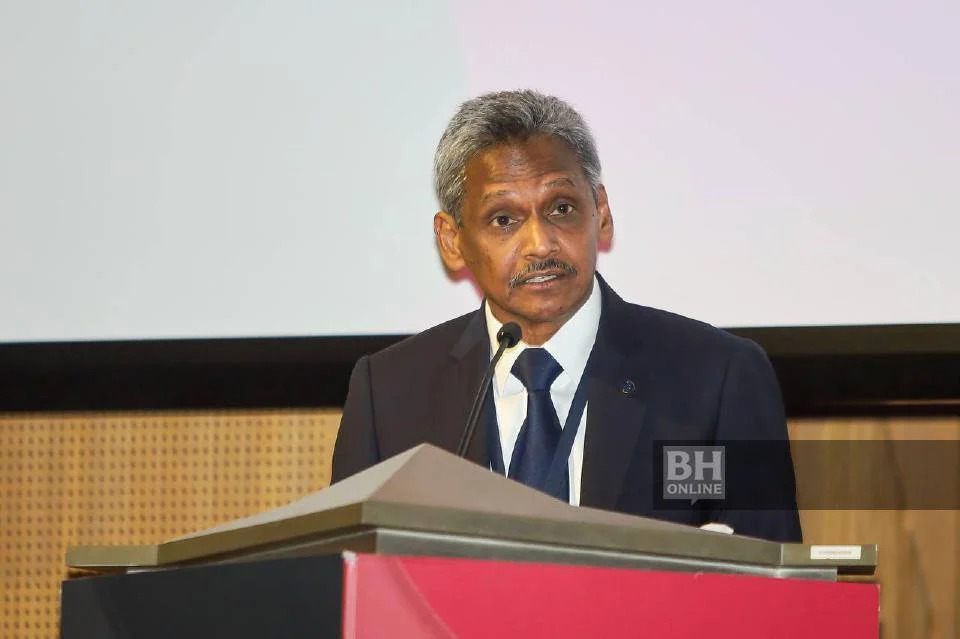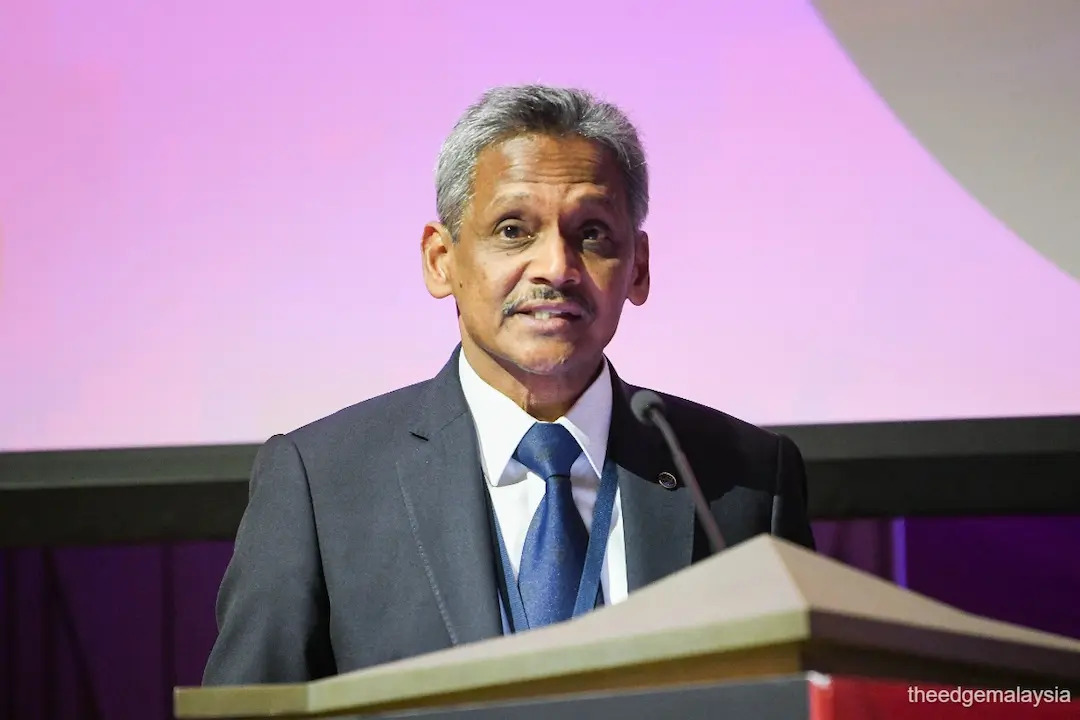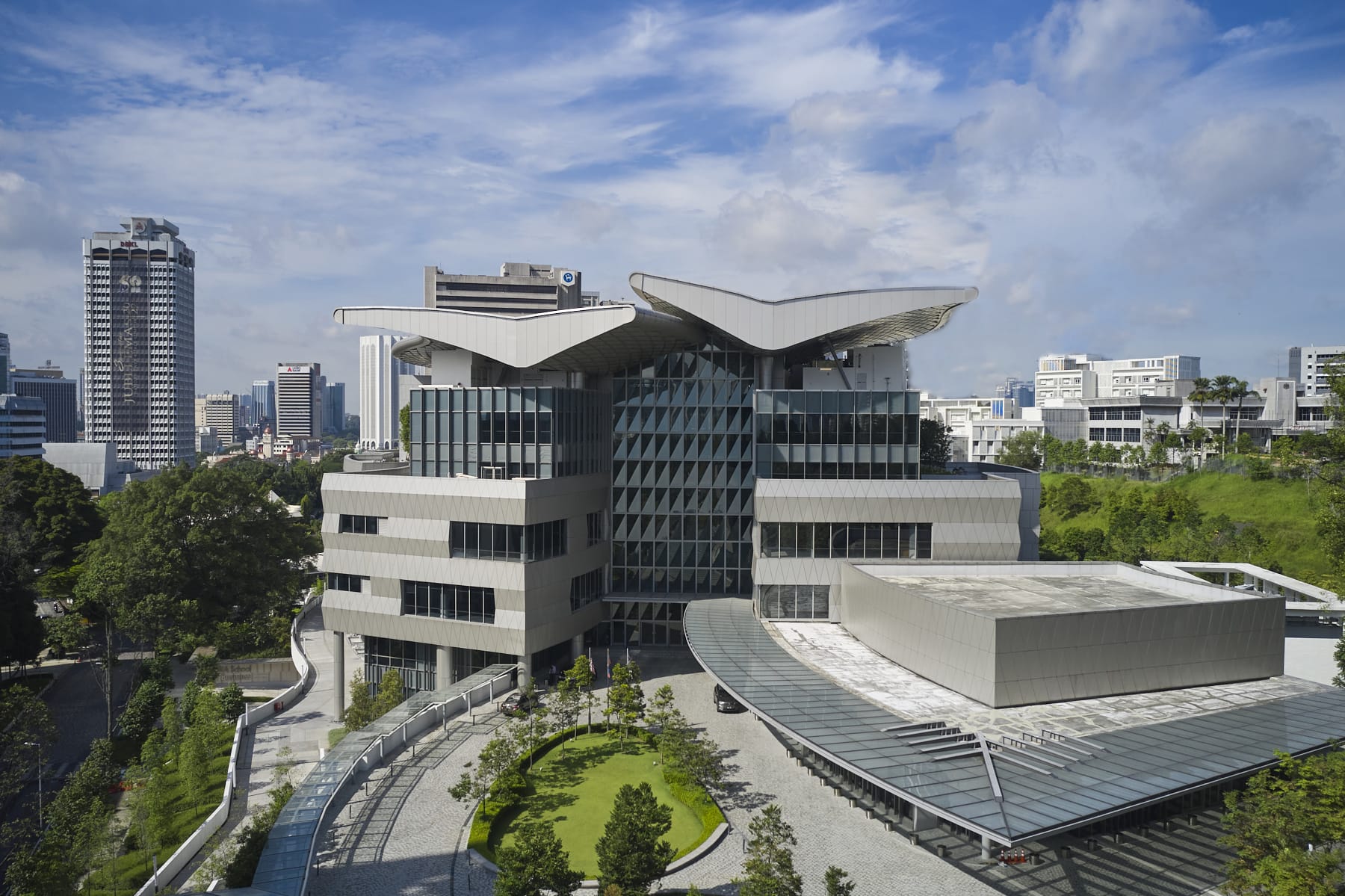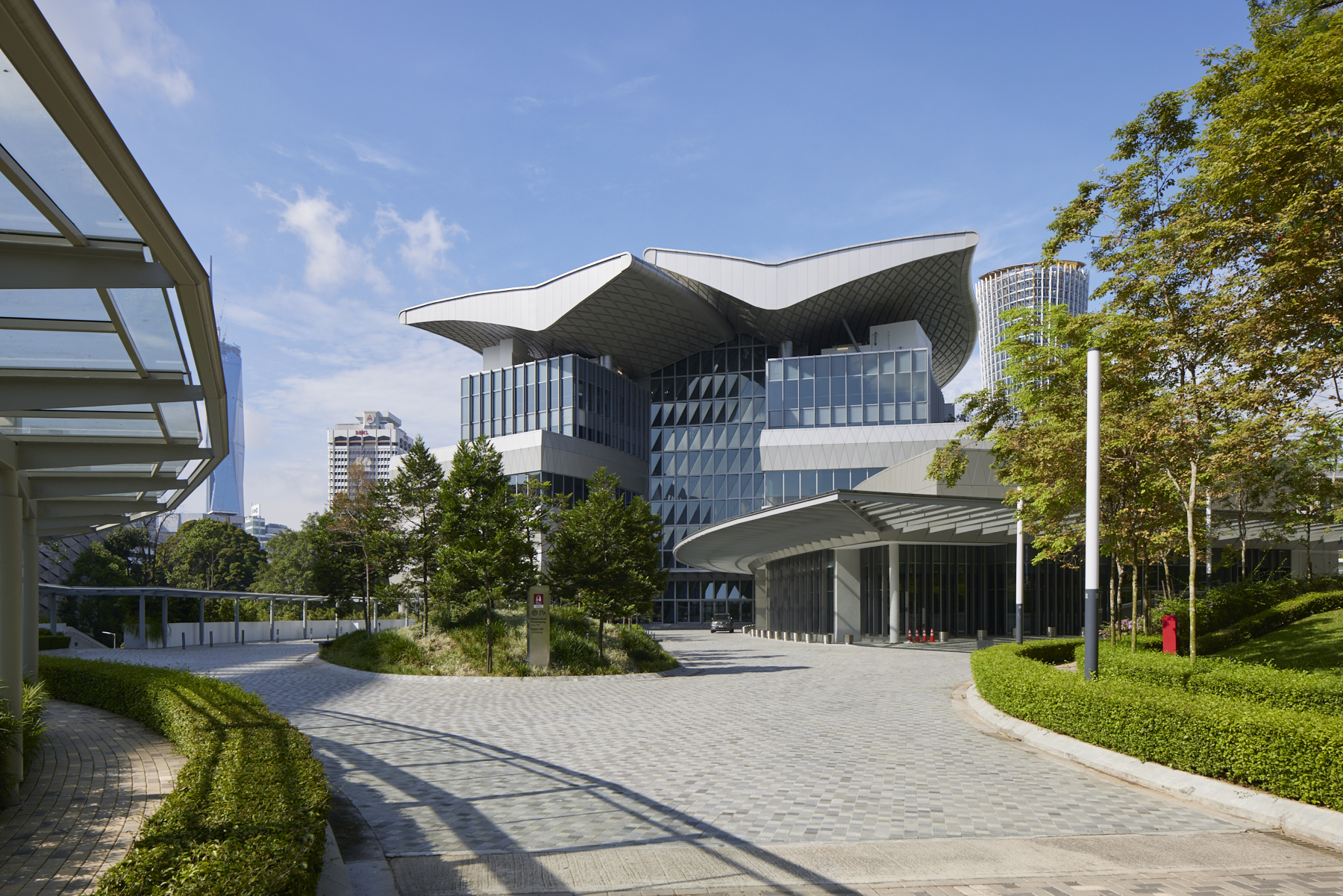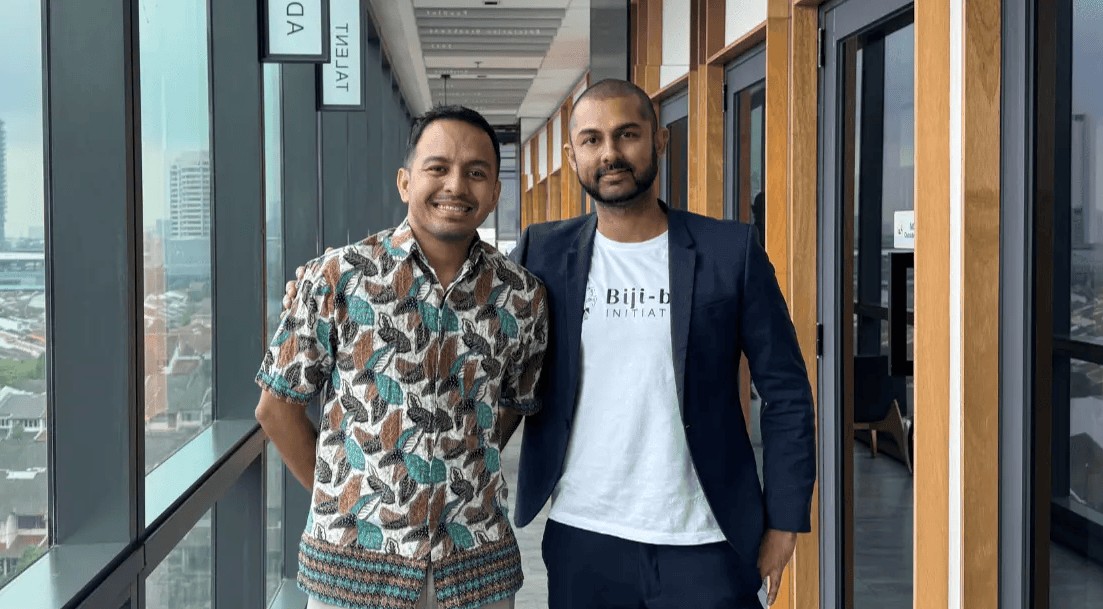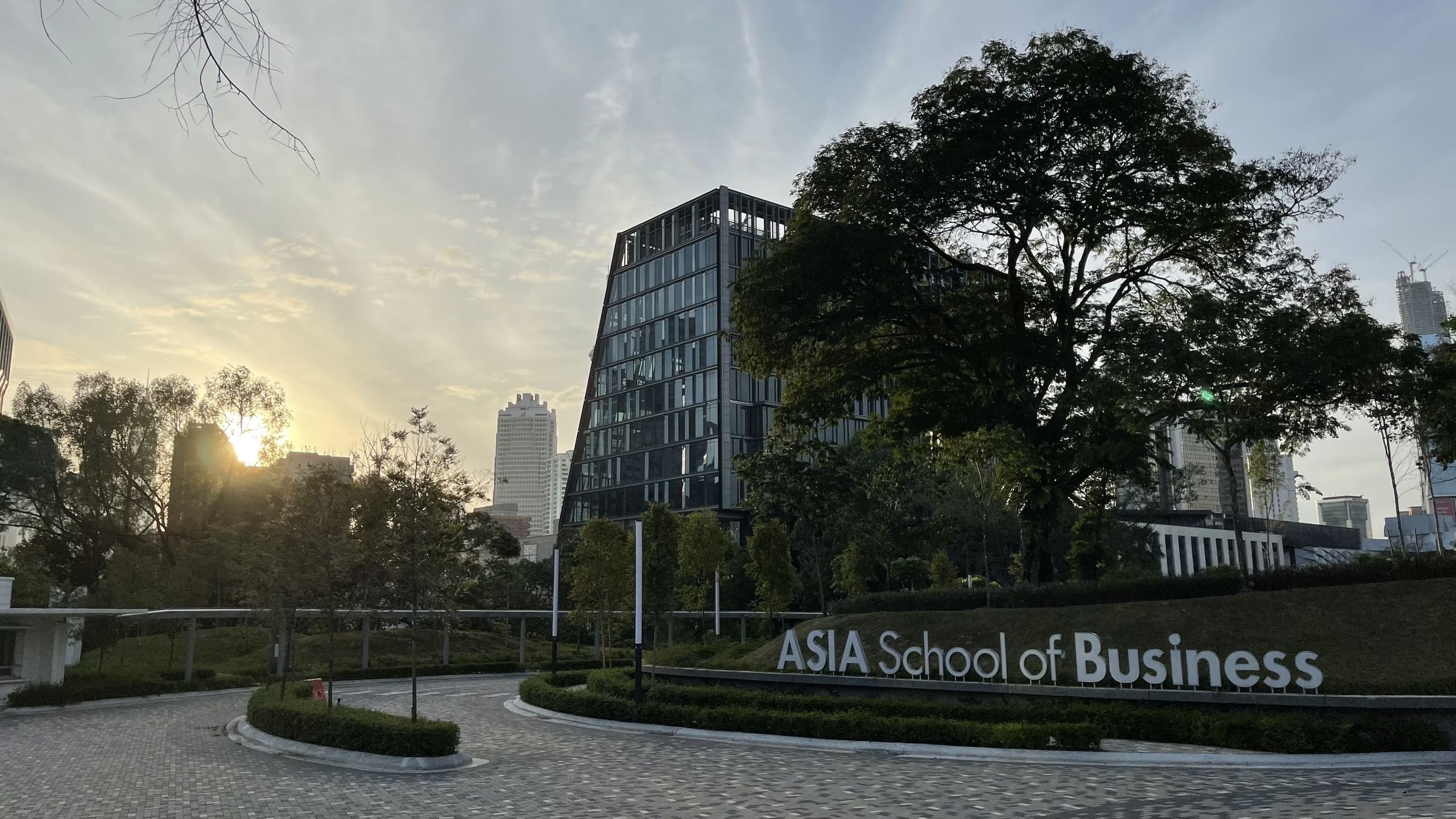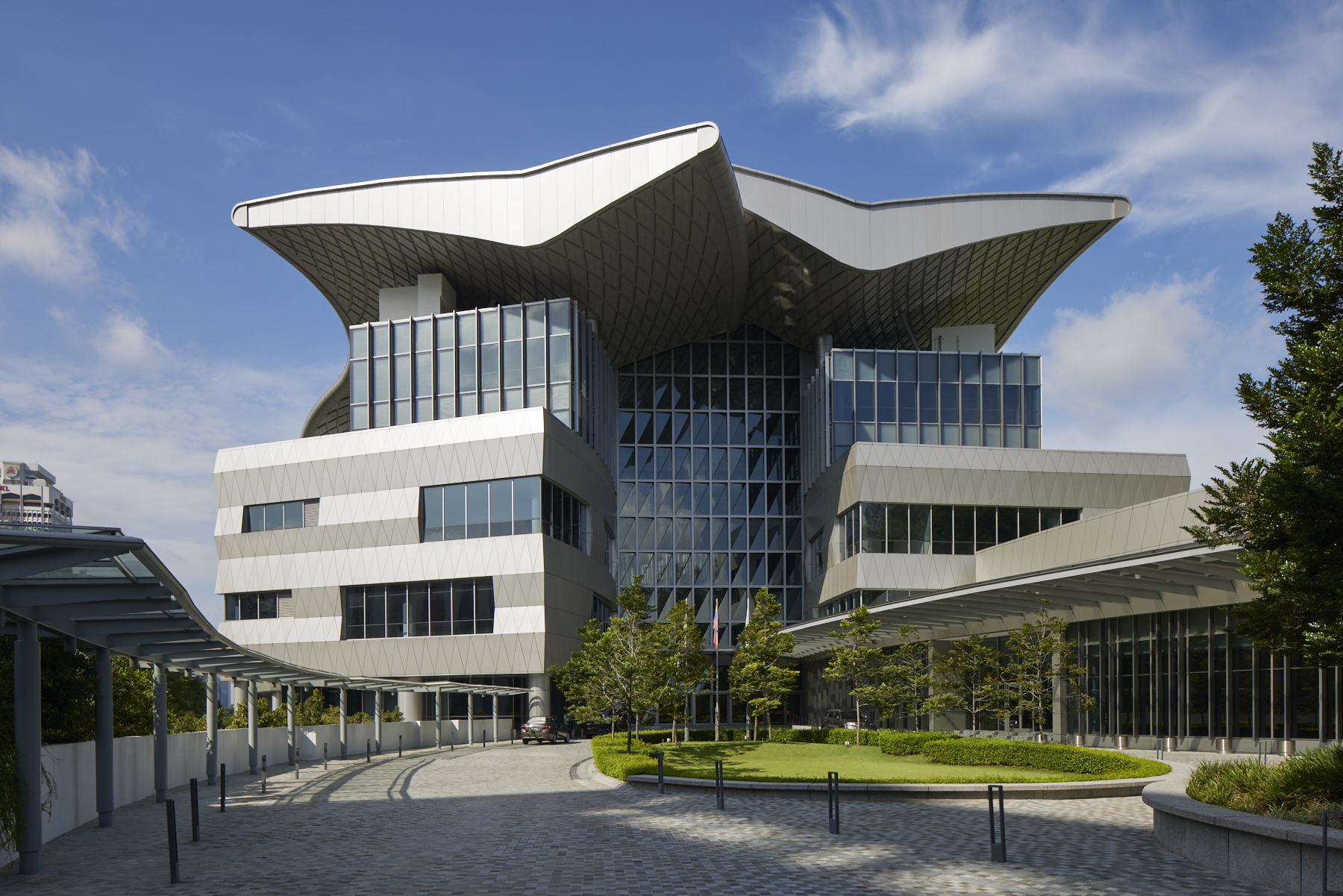“From a city in Indonesia to the world—bridging cultures, embracing challenges, and finding joy along the way.”
Hometown:
Kuala Lumpur, Malaysia
Fun fact about yourself:
I got my MBA scholarship through a story of redemption—and a gado-gado (Indonesian salad) analogy to describe my journey. I love tackling challenges with fresh perspectives and finding creative solutions. People often approach me for tricky, unexpected problems, and I enjoy making sense of the chaos. Behind my smile is perseverance, discipline, grit, and sharp analytical thinking that keeps me pushing forward.
Undergraduate School and Degree:
Taylor’s University, Bachelor of International Hospitality Management
Where was the last place you worked before enrolling in business school?
Teleport AirAsia, Head of Commercial
Where will you be working after graduation?
I hope to keep solving complex challenges in unique ways. Ideally, I’d stay in logistics, supply chain, or FMCG because I love seeing how the world moves and how it impacts people’s lives every day. I thrive in roles that are both strategic and action-packed, and I hope to continue being in the heart of the action—where decisions shape real-world outcomes.
Community Work and Leadership Roles in Business School:
I earned an MBA scholarship and currently serve as the President of the Women’s Club. In the past, I was the Multiple Dean’s List Recipient, President of the Indonesian Student Society and the Executive Director of the International Student Council. Leadership has always been a big part of my journey, and I thrive in bringing people together, driving meaningful initiatives, and creating spaces for diverse voices to be heard.
Which academic or extracurricular achievement are you most proud of during business school?
L’evive Labs – Head of Operations & Founding Team Member (Longevity Startup), Kuala Lumpur
Growing up in a family with a history of diabetes and heart disease, health and wellness have always been personal to me. I’ve seen firsthand how lifestyle and preventive care can change lives, and I want to be part of that generational shift. That’s why building L’evive Labs, Southeast Asia first online longevity clinic— blending health, innovation and technology— while pursuing my MBA has been so meaningful. Working closely with the founder, we bootstrapped our way to $10K in revenue without any marketing—just a belief in what we were building and the drive to make it work. My knowledge of the region and trade regulations in Southeast Asia helped lay the foundation for the company’s future. Being named a finalist at the INNOCOS Wellness & Longevity Awards was a proud moment, not just as validation of our work, but as a step toward making proactive health accessible to more people.
What achievement are you most proud of in your professional career?
One of the moments I’m most proud of is turning around Pandago at Foodpanda, taking it from a struggling product to the top performer in APAC. It wasn’t an easy ride—there was a lot of resistance, and not everyone believed in it. But I focused on the execution, got the right people on board, and proved that with the right approach, something seen as a failure could actually thrive.
Another defining experience was at Teleport AirAsia, where I had to make the tough call to recommend shutting down an unviable product. It wasn’t a decision people wanted to hear, but it was the right one for the business. That experience taught me that leadership isn’t just about building things—it’s also about knowing when to step back and make the hard choices.
But beyond these achievements, what I’m really proud of is how far I’ve come—starting from a completely different background and finding my way through industries I never imagined myself in. I’ve had to learn, adapt, and prove myself over and over again. Through all of it, I’ve realized that what truly drives me isn’t just solving problems but finding new perspectives and challenging what’s possible.
Why did you choose this business school?
In my search for the best business school in Southeast Asia, Asia School of Business stood out with its action-centric approach—something that sets it apart from the rest. While many schools focus on case studies, ASB pushes you to learn by doing, which resonates deeply with how I approach challenges.
Its close connection to MIT Sloan brings the same mens et manus (mind and hand) philosophy to this region, bridging world-class academic rigor with real-world application. More importantly, ASB values diversity—not just in background but in perspective. As someone with an unconventional career path, I felt seen, appreciated, and challenged in all the right ways. From the start, it felt like the right synergy, and it continues to be a place where I grow, push boundaries, and redefine what’s possible.
Who was your favorite MBA professor?
Learning from Professor Michael Frese has been one of the most eye-opening experiences at ASB. His approach to leadership and organizations—rooted in behavioral science—has made me rethink how businesses actually work. I’ve always been fascinated by how people shape organizations, and his insights reinforce the idea that a company’s strength comes from the minds of its people, not just its strategies.
Beyond the engaging classes and exercises, he’s someone I genuinely respect and look up to. He brings deep industry experience but also a down-to-earth way of teaching that makes complex ideas feel practical and real. His lessons have challenged me to not just think about execution, but to understand what truly drives people, teams, and long-term impact.
What was your favorite course as an MBA?
Beyond Organizational Behavior with Prof. Michael Frese, I found myself really drawn to Marketing Management with Prof. Juanjuan Zhang, a visiting professor from MIT. Her course combined marketing analytics with human psychology in a way that just made sense—it felt less like theory and more like understanding how people actually think and make decisions.
One of the things that stuck with me was how consumer behavior is shaped by social influence and observational learning—how we subconsciously take cues from others when making choices. It made me look at everyday decisions differently, from the way products go viral to why certain brands build such loyal followings.
What I loved most was that it wasn’t just theory; it was hands-on and discussion-driven, with immediate real-world applications. We didn’t just talk about market segmentation and targeting; we worked through challenges that made us think critically about how businesses actually apply these concepts.
Prof. Zhang’s teaching style was both engaging and thought-provoking—she made complex ideas feel intuitive. More than anything, her class deepened my curiosity about how marketing, data, and psychology all intersect, and it’s something I know I’ll keep exploring long after my MBA.
What was your favorite MBA event or tradition at your business school?
I’ve really enjoyed the weekly Career Development Office (CDO) core sessions every Friday. They’re not just about career advice—they’ve been a space to explore personal growth, career challenges, and the kind of real-world lessons that we don’t always get in formal education.
What makes them stand out is how interactive and honest they are. We don’t just sit through lectures; we role-play real situations, have open discussions, and challenge how we think about our careers. There’s a mix of curiosity and vulnerability in the room that makes it feel real—like we’re figuring things out together rather than just following a playbook.
I also didn’t expect to appreciate the career coaching support as much as I do. Having that space to talk things through, reflect, and get guidance has been incredibly helpful. It’s been one of those small but meaningful parts of my MBA experience that I know will stick with me long after I graduate.
Looking back over your MBA experience, what is the one thing you’d do differently and why?
Honestly, I wouldn’t change a thing. I believe that everything happens at the right place and the right time. The challenges, the unexpected turns, and even the moments of doubt have all been part of the learning process. If anything, this journey has taught me to trust the process, embrace uncertainty, and make the most of every opportunity as it comes.
What is the biggest myth about your school?
A lot of people think ASB is too expensive and not much different from other local MBAs—but that’s far from the truth.
What makes ASB stand out isn’t just the academics, but how much learning happens through action. The projects, industry exposure, and hands-on challenges push us to apply what we learn in ways I didn’t expect. It’s not just theory—it’s figuring things out in real-world settings, which has been the most valuable part of the experience.
What also surprised me was how personalized the support is. The faculty and staff are incredibly attentive, genuinely invested in our growth, and always willing to help. I never expected that level of care from a business school, but it’s made a huge difference in my journey here.
What did you love most about your business school’s town?
I’ve lived in Kuala Lumpur for the past 10 years. In that time, I’ve experienced the vibrancy of this emerging nation firsthand. It’s a city that blends cultures, industries, and opportunities in a way that’s hard to find elsewhere.
What makes KL special is that it’s not just a hub for Malaysia—it’s a gateway to the APAC region, offering access to diverse markets and people from all over the world. At the same time, the city isn’t overwhelmingly large, which makes professional networking feel more personal and engaging. It’s easy to connect with like-minded people, build meaningful relationships, and find opportunities to grow.
What is one way that your business school has integrated AI into your programming?
What insights did you gain from using AI? At ASB, AI isn’t something to be avoided—it’s something to be understood and challenged. Our Dean, Prof. Sanjay Sharma, is a big advocate for AI. Instead of banning its use in assignments, we’re encouraged to critique it, question its outputs, and think deeper about its role in decision-making. I appreciate this approach because, in reality, AI isn’t going anywhere—so learning how to use it wisely is more important than ignoring it.
The school has also introduced an AI for Business Leaders program, opening discussions beyond the classroom to corporate participants. And when we go to MIT for our global programs, nearly all of our coursework will focus on AI, which really shows how much the school believes in preparing us for what’s ahead.
For me, the biggest takeaway has been that AI doesn’t replace critical thinking—it forces us to think even more critically. Log OutIt’s easy to take AI’s answers at face value, but the real challenge is knowing when to trust it, when to question it, and how to use it to make better decisions.
Which MBA classmate do you most admire?
Parvinjeet Kaur—she’s a mom, a business owner, and one of the most genuine, down-to-earth people I’ve met. What I love about her is how passionate and real she is. When she speaks about something she cares about, you can feel it—it’s not just words, it’s who she is. She somehow juggles everything—family, business, and school—without ever losing her warmth. She’s proof that you can do it all in your own way, and I really look up to her, not just as a classmate, but as a person.
What are the top two items on your professional bucket list?
First, coming from a hospitality background first and foremost, I want to create a space where people can truly experience my culture—not in a flashy or commercial way, but through simple, everyday moments. I’ve always loved the kind of hospitality that makes people feel at home, where good food and nature bring people together. I dream of building a small retreat centered around farm-to-table living, a place where people can slow down, enjoy fresh food, and reconnect with themselves and the world around them. To me, culture isn’t something to put on display—it’s something you feel, taste, and live. More than anything, I just want to create a place that feels honest, where tradition, wellness, and sustainability naturally come together.
Second, I hope to lead a company one day—not just in title but in the way that truly matters. I want to be in a role where I can shape things, make decisions that matter, and create an environment where people feel excited to work and grow. It’s not about chasing a position; it’s about building something that lasts and actually makes a difference.
What made Risa such an invaluable addition to the Class of 2025?
“Risa Ichwandiani is the kind of leader who not only excels in her own endeavors, but also brings out the best in those around her. In the face of one of the most stressful moments in our MBA program—the first class exam—Risa remained a calming force, reassuring her classmates that they would make it through together. Her ability to remain composed under pressure and instil a sense of calmness in others reflects the strength of her leadership. Beyond this, Risa has consistently demonstrated her organizational and leadership skills, especially in launching the first Women’s Association Club event, which saw an impressive turnout thanks to her dedication and ability to balance multiple responsibilities, including her studies and family.
Her cheerfulness and positivity are infectious, making her a source of light in any room she enters. Whether in the classroom or in personal interactions, Risa’s genuine appreciation for others—especially for the staff at ASB—is well-known. She consistently expresses her gratitude, making her an influential and respected member of the community.”
Jim Lee
Assistant Director, Student Services at ASB





